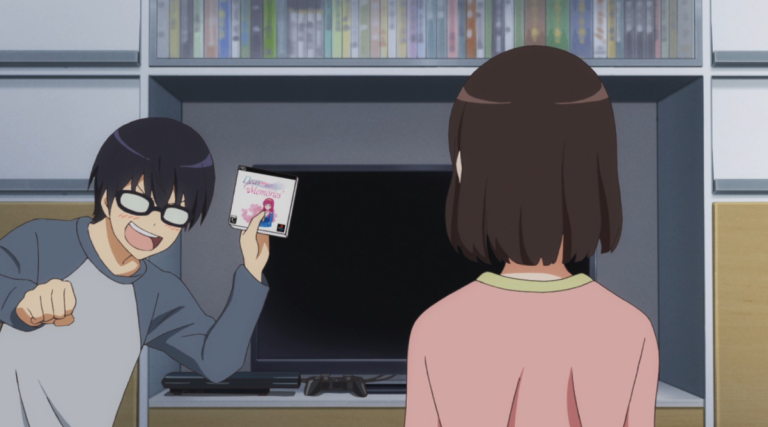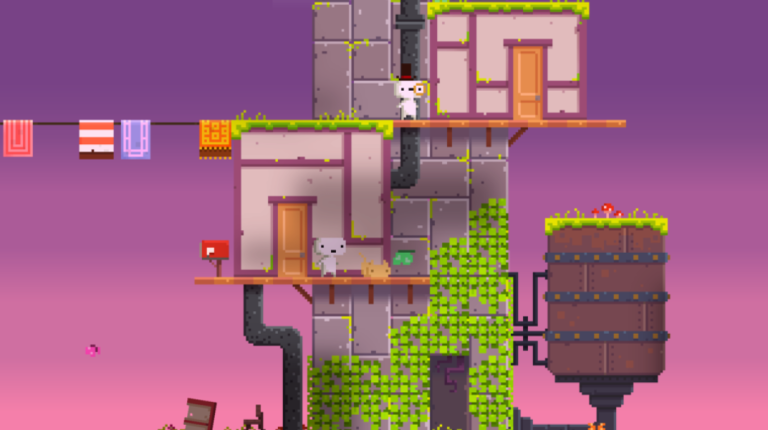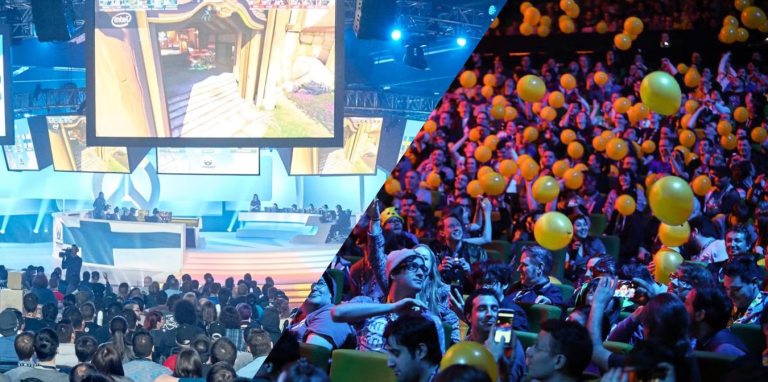
When AJ was a kid, his favorite thing was sneaking into the local internet café after school to play Warcraft III. He’d crack jokes imitating the voice lines of female Night Elves, making his friends laugh. Outwardly, he was bright, social, and easygoing. But inside, he was hiding something: he always picked female characters, preferred emotional storylines over action, and was terrified of anyone finding out he was gay.
Back then, being a “gay gamer” felt like choosing the wrong character class in a game with no way to respec.
That changed when he went to college. There, he met a few fellow gamers who were also LGBTQ+. One late night, huddled in a messy dorm room with half-empty soda bottles and glowing laptop screens, they started talking about how The Sims 4 finally allowed same-sex marriage. One of them said, “For the first time, it felt like the game acknowledged my real life.” That moment was more than just a conversation—it was a connection, a revelation. They weren’t alone. They were “Gaymers.”
The term isn’t new, but in the last decade, its presence and impact have become impossible to ignore. Whether it’s LGBTQ+-friendly Twitch streams, inclusive Discord communities, or deeply personal roleplay in sprawling RPGs, Gaymers are reshaping the culture of gaming—pixel by pixel.
Games like Mass Effect and Dragon Age have led the way. BioWare, the studio behind them, is affectionately known in the LGBTQ+ community as “one of us” for its sincere, organic portrayal of same-sex relationships. In these worlds, love stories between characters of the same gender aren’t treated as side content—they’re written with care, depth, and heart.
AJ still remembers playing The Witcher 3. While Geralt, the main character, is canonically straight, there were moments—small, subtle ones—that made him feel seen. A random NPC casually mentioning “my boyfriend couldn’t beat that monster either.” A grizzled hunter hinting at a past love who wasn’t a woman. “Even just hearing that,” AJ said, “was like hearing someone speak your language in a foreign city. You feel… less alone.”
But not all gaming spaces are so welcoming. Toxic voice chats and slurs like “f*g,” “soyboy,” or “you play like a girl” still flood online lobbies. Many LGBTQ+ gamers hide their identities to avoid ridicule. One player shared on Twitter: “The second I spoke, the whole team went quiet. Then someone said, ‘This isn’t a fashion show—why are you even here?’” That kind of hostility is still a brutal reality, reminding us that even as visibility grows, so does the need for safe spaces.
Ironically, one of the most peaceful games sparked a joyful wave of LGBTQ+ expression: Animal Crossing: New Horizons. After its release, Reddit’s “lgbtanimalcrossing” thread exploded with photos of virtual weddings, pride island décor, and “coming out parties.” Players weren’t just building islands—they were building identities.
And those islands weren’t isolated. In cities like San Francisco, London, and Toronto, real-world Gaymer Nights bring people together. Think neon-lit bars, Mario Kart on big screens, Switches passed around like drinks, and spontaneous “Just Dance” duels. When AJ went to one in Taipei, he told me, “It was the first time I could say, out loud, ‘I’m gay and I’m a nerd’—and not get weird looks.”
Game studios are starting to take notice. Ubisoft added same-sex relationships in Assassin’s Creed. PlayStation rolled out Pride-themed console skins. These aren’t just marketing stunts—they reflect the growing influence and voice of LGBTQ+ players. Gaymers aren’t on the fringe anymore. They’re fans, creators, and culture-makers.
They’re also master storytellers. From fanfiction and mods to YouTube essays and memes, Gaymers bring depth, humor, and emotional nuance to games in ways that elevate the entire experience. They often explore character psychology and plot arcs with a sensitivity and insight that’s refreshing in an industry that still leans heavily on macho tropes.
Recently, AJ’s been obsessed with Starfield. He created a gender-neutral explorer named Nova, always choosing the kindest dialogue options. “Here, I don’t have to pretend,” he said. “I can be a space adventurer and a soft-hearted romantic at the same time.” Nova, meaning “new star,” represents hope. A world where every soul, no matter their identity, can shine freely.
And maybe that’s what the rise of Gaymers is really about. It’s not just about representation—it’s about reclamation. About creating worlds where everyone, truly everyone, belongs.
From Shadows to Spotlight: How LGBTQ+ “Gaymers” Are Redefining Gaming Culture
When AJ was a kid, his favorite thing was sneaking into the local internet café after school to play Warcraft III. He’d crack jokes imitating the voice lines of female Night Elves, making his friends laugh. Outwardly, he was bright, social, and easygoing. But inside, he was hiding something: he always picked female characters, preferred emotional storylines over action, and was terrified of anyone finding out he was gay.
Back then, being a “gay gamer” felt like choosing the wrong character class in a game with no way to respec.
That changed when he went to college. There, he met a few fellow gamers who were also LGBTQ+. One late night, huddled in a messy dorm room with half-empty soda bottles and glowing laptop screens, they started talking about how The Sims 4 finally allowed same-sex marriage. One of them said, “For the first time, it felt like the game acknowledged my real life.” That moment was more than just a conversation—it was a connection, a revelation. They weren’t alone. They were “Gaymers.”

The term isn’t new, but in the last decade, its presence and impact have become impossible to ignore. Whether it’s LGBTQ+-friendly Twitch streams, inclusive Discord communities, or deeply personal roleplay in sprawling RPGs, Gaymers are reshaping the culture of gaming—pixel by pixel.
Games like Mass Effect and Dragon Age have led the way. BioWare, the studio behind them, is affectionately known in the LGBTQ+ community as “one of us” for its sincere, organic portrayal of same-sex relationships. In these worlds, love stories between characters of the same gender aren’t treated as side content—they’re written with care, depth, and heart.
AJ still remembers playing The Witcher 3. While Geralt, the main character, is canonically straight, there were moments—small, subtle ones—that made him feel seen. A random NPC casually mentioning “my boyfriend couldn’t beat that monster either.” A grizzled hunter hinting at a past love who wasn’t a woman. “Even just hearing that,” AJ said, “was like hearing someone speak your language in a foreign city. You feel… less alone.”
But not all gaming spaces are so welcoming. Toxic voice chats and slurs like “f*g,” “soyboy,” or “you play like a girl” still flood online lobbies. Many LGBTQ+ gamers hide their identities to avoid ridicule. One player shared on Twitter: “The second I spoke, the whole team went quiet. Then someone said, ‘This isn’t a fashion show—why are you even here?’” That kind of hostility is still a brutal reality, reminding us that even as visibility grows, so does the need for safe spaces.
Ironically, one of the most peaceful games sparked a joyful wave of LGBTQ+ expression: Animal Crossing: New Horizons. After its release, Reddit’s “lgbtanimalcrossing” thread exploded with photos of virtual weddings, pride island décor, and “coming out parties.” Players weren’t just building islands—they were building identities.
And those islands weren’t isolated. In cities like San Francisco, London, and Toronto, real-world Gaymer Nights bring people together. Think neon-lit bars, Mario Kart on big screens, Switches passed around like drinks, and spontaneous “Just Dance” duels. When AJ went to one in Taipei, he told me, “It was the first time I could say, out loud, ‘I’m gay and I’m a nerd’—and not get weird looks.”
Game studios are starting to take notice. Ubisoft added same-sex relationships in Assassin’s Creed. PlayStation rolled out Pride-themed console skins. These aren’t just marketing stunts—they reflect the growing influence and voice of LGBTQ+ players. Gaymers aren’t on the fringe anymore. They’re fans, creators, and culture-makers.
They’re also master storytellers. From fanfiction and mods to YouTube essays and memes, Gaymers bring depth, humor, and emotional nuance to games in ways that elevate the entire experience. They often explore character psychology and plot arcs with a sensitivity and insight that’s refreshing in an industry that still leans heavily on macho tropes.
Recently, AJ’s been obsessed with Starfield. He created a gender-neutral explorer named Nova, always choosing the kindest dialogue options. “Here, I don’t have to pretend,” he said. “I can be a space adventurer and a soft-hearted romantic at the same time.” Nova, meaning “new star,” represents hope. A world where every soul, no matter their identity, can shine freely.
And maybe that’s what the rise of Gaymers is really about. It’s not just about representation—it’s about reclamation. About creating worlds where everyone, truly everyone, belongs.
![]()


